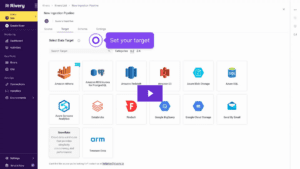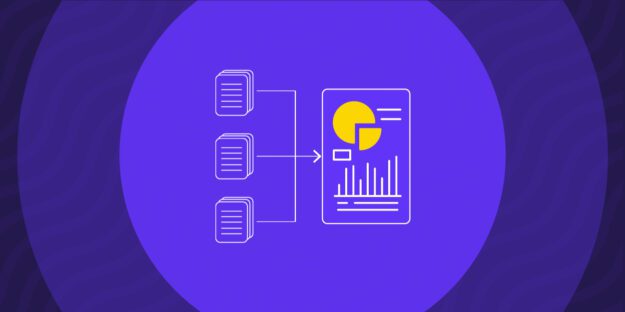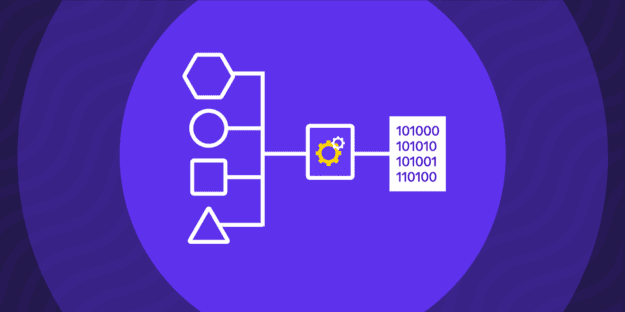One of the key building blocks of any data-driven company is to establish solid databases and strategies for managing them. Many data management companies continue to struggle with data management, data storage, data sharing, data silos, and data location.
Data management tools can help companies overcome these challenges in order to streamline and optimize data processes, as well as secure sustainable growth. In this article, we’ll cover the 14 most reliable data management tools in 2024.
What are Data Management Tools?
Data management tools are software applications designed to organize, process, and analyze data. They help unify data by breaking down silos and creating a single platform for large datasets. These tools provide insights by helping marketers and businesses understand customer preferences and behaviors. They also integrate data from various sources, like mainframes and desktops, into a standardized format.
4 Key functions of data management tools include:
Data Collection and Ingestion: Capturing data from various sources, including databases, applications, IoT devices. Importing collected data into a central repository or system for further processing
Unifying Data: Consolidating data into one accessible platform.
Providing Insights: Offering analytics to understand customer and business patterns.
Integrating Data: Merging data from multiple sources into a single format.
The Key Features of Data Management Tools
Some key features of data management tools include data cleansing, integration, storage, and governance. All of these features contribute to better decision-making by filtering out irrelevant data and making the most out of the information that’s been collected.
- Data Integration and Cleansing: This capability brings structure to data that may already exist in companies’ servers, databases, or legacy systems, resulting in time and cost savings. In addition, a good data management tool is equipped with data cleansing capacities that are essential to the data’s consistency and accuracy.
- Data Storage Capability: If not properly stored, data might not be easily accessible and can eventually become lost. This might be a serious setback for companies that rely on heavy data. Reliable data management tools come with multiple data storing options, allowing data operators to choose the most suitable one that aligns with the company’s requirements. In an ideal scenario, a data management tool has a built-in disaster recovery solution.
- Data Governance: This feature revolves around ensuring the privacy, accuracy, security, availability, and usability of data coming from different outlets. The data governance process covers the implementation of procedures and policies to govern the data process as a whole. Data governance ensures data stays safe, private, accurate, accessible, and appropriate for a company’s business needs.
Types of Data Management Tools
There are a lot of DMP categories, with data integration tools, ETL tools, cloud data management tools, data management tools, and data analytics tools as the most popular ones.
- Data integration tools “consume” data, consolidate it, transform it, and transfer different data types from its native source to a designated destination. These tools also map data and perform data-cleansing activities
- ETL tools integrate data and construct data pipelines faster than usual. These tools gather, read, and relocate massive volumes of raw data from various data sources across different platforms and systems
- Cloud data management tools / cloud data management platforms securely migrate and manage data, simplifying data operations, eliminating silos, and extract specific values for data
- Data management tools are designed to generate and monitor data activities and organize, manage, and analyze organizational data
- Data analytics tools allow businesses to gather insights from customer data, as well as familiarize themselves with customer trends and patterns. The ultimate aim is to make better business decisions
Top 14 Data Management Tools
We’ve pinpointed 14 of the best DMPs of 2024. However not all DMP’s are created equal, so we’ve divided our list into 4 categories including:
ETL and Data Integration Tools,
Cloud Data Management Tools,
Master Data Management Tools,
Data Visualization and Data Analytics Tools.
- Rivery
- Hevo Data
- Stitch Data
- Fivetran
- Amazon Web Services
- Microsoft Azure
- Google Cloud Platform
- Dell Boomi
- Profisee
- Ataccama ONE
- Tableau
- Looker
- Microsoft Power BI
- Lotame
ETL and Data Integration Tools
Extract, transform, and load (ETL) tools are critical to data integration processes or business intelligence (BI) solutions. ETL tools aid businesses in automating their data processes and loading data in real-time into a data repository.
ETL and data integration tools come with built-in connectors for trending data sources and end destinations, making it easier to integrate data with many data systems.
1. Rivery
Steadily becoming one of the go-to SaaS ELT platforms, Rivery is helping companies focus on what matters. This data management platform is specifically designed to streamline the entire data flow process and lifecycle by offering modern data management companies the option to unify, orchestrate, and handle complex data processes seamlessly.
Rivery’s flexible DMP offers SQL, Python, and pre-packaged data workflow templates that make it easier for technical and non-technical users to sort, clean, prep, and analyze data.
- Data integration – 200+ plug-and-play data connectors and REST API to connect to any data source
- Data transformation – for any use case with SQL or Python
- Data orchestration – automating all data processes, from start to finish
- Data management – full control over data, multiple environments with built-in version control CI/CD, and data users, enterprise-grade governance
- Reverse ETL – to send data and insights to specific business apps
- Cloud ELT for fully-managed data pipelines, with multi-cloud and serverless computing environments.
2. Hevo Data
Hevo Data offers user-friendly, reliable data integration solutions. As a data management platform, it allowed for handling massive volumes of data.
- Replicate data in almost real-time from more than 150 sources
- Monitor data lifecycles and workflows
- Load data with or without primary keys, etc
3. Stitch Data
As a cloud-based ETL platform, organizations can use Stitch to pull data from different sources into a data warehouse.
- Scheduling data replications;
- Automated error resolutions;
- API and JSON frameworks for loading data into warehouses, etc.
4. Fivetran
Fivetran is a fully managed data pipeline platform that comes with 150+ data connectors. With Fivetran, businesses get analysis-ready data schemas that adapt to changes in the data source automatically.
- No data limits
- Automated data movement
- Ability to integrate all data sources to determine KPIs, etc.
5.Lotame
This is a flexible and independent data management platform. Some of Lotame’s client-favorite features include:
- Great audience segmentation;
- Integratable with ad servers, BI tools, DSPs, and SSPs;
- Flexible pricing, etc.
Cloud Data Management Tools
A cloud data management tool, or a cloud data management platform, is vital for businesses looking to grow data.
6. Amazon Web Services
AWS is an all-encompassing network of cloud data management services that tend to organizations’ different data-based needs. AWS is comprised of several different cloud data management tools, such as:
- Amazon S3 (Simple Storage Service) is a highly scalable and durable object storage service
- Amazon RDS (Relational Database Service) simplifies the management of relational databases in the cloud
- Amazon Redshift is a fully managed data warehousing service designed for high-performance data analytics, etc.
7. Microsoft Azure
Azure comes with built-in support that analyzes data and offers key insights. Some of the software’s most praised features include:
- SQL databases
- Virtual machine-based SQL servers
- Private cloud deployments, etc.
8. Google Cloud Platform
Google’s cloud platform is equipped with a plethora of cloud data management tools, such as:
- Cloud Datalab for code-based data science activities
- Cloud Pub for data ingestion
- Cloud BigTable for NoSQL database storage, etc.
Master Data Management Tools
Master data management tools are tools that ensure master data is aligned across all data-related levels of the organization.
9. Dell Boomi
- Deploys data models and identifies source systems
- Automatically merges similar data records
- Governs data in real-time, etc.
10. Profisee
- Creates and delivers data information across organizations;
- Cleans, pairs, and standardizes source data without using code;
- Real-time, bi-directional data integration, etc.
11. Ataccama ONE
- Automated database management software;
- Metadata discovery;
- Can be cloud-based, on-premise, or a hybrid, etc.
Data Visualization and Data Analytics Tools
These types of data tools transform written data into visualizations, like charts, graphs, etc., making gathering insights easier.
12. Tableau
- Seamless connection to data sources
- Automatic creation of interactive maps
- Unlimited data exploration, etc.
13. Looker
- Perfect for business intelligence, data applications, and embedded analytics
- Comes with LookML, Looker’s data modeling language
- Connects directly to databases, etc.
14. Microsoft Power BI
- Perfect for data analysts and data scientists
- Extensive library of pre-built data connectors
- No-code commands, etc.
Factors to Consider while Selecting Data Management Tools
The best data management tools are usually packed with a handful of options regarding data storage, integration, and more. Look for the following aspects when choosing one:
- Compliance with requirements
- Versatile data storage options
- Simple dashboards
- Local support
- Solid data collection and organization options
- Retargeting capabilities
- Data customization
DMP Tool Comparison
| Rivery | ☑️ 200+ data connectors |
| Hevo Data | ☑️ Data replication from 150+ sources |
| Stitch Data | ☑️ Scheduling data replication |
| Fivetran | ☑️ No data limits |
| Lotame | ☑️ Flexible and independent |
| AWS | ☑️ Wholesome and packed with features |
| Microsoft Azure | ☑️ Built-in support for data analysis |
| Google Cloud Platform | ☑️ Umbrella for many tools |
| Dell Boomi | ☑️ Automated data merging |
| Profisee | ☑️ No-code data actions |
| Ataccama ONE | ☑️ Metadata discovery |
| Tableau | ☑️ Interactive maps |
| Looker | ☑️ Direct database connection |
| Microsoft Power BI | ☑️ Great for technical users |
Conclusion
Finding the right data management platform should hopefully be easier with the guidance we’ve provided. Solid DMP platforms offer many data storage options, seamless navigation, UI, error-free data integration, ETL, and a handful of other perks.
Read more about Rivery!
Minimize the firefighting. Maximize ROI on pipelines.





